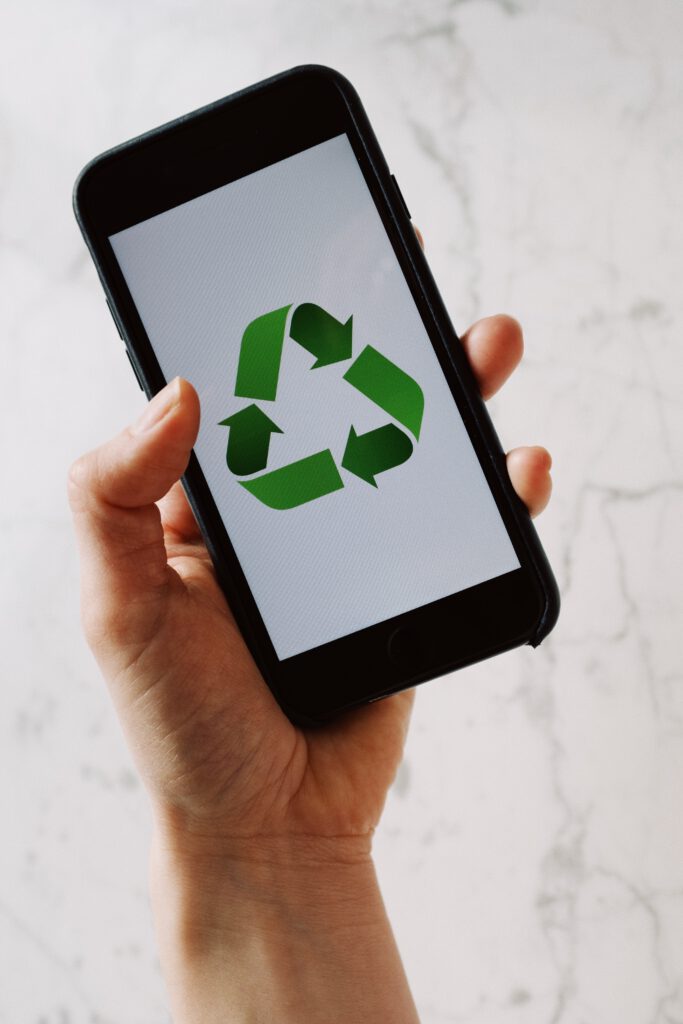Green Tech and Climate Change: How Our Everyday Decisions are Impacting the Planet

How we produce and use energy everyday impacts the environment in ways that are both natural and man-made. In this article, we’ll explore the intersection between climate change and green tech, focusing on the human-produced factors that contribute to global warming, as well as ways to reduce our collective impact through sustainable practices. We’ll also discuss how these decisions can impact our individual health and well-being, and what we all can do to minimize our personal contributions to climate change.
What is Green Tech?
Green tech is any technology that is considered environmentally friendly based on its production process or its supply chain. It can also refer to clean energy production, the use of alternative fuels, and technologies that are less harmful to the environment than fossil fuels. With climate change being one of the most pressing issues of our time, it’s important to consider how human impacts on a global scale can be mitigated by adopting green technologies. There are many advantages to adopting green technologies. For example, if you switch your lightbulbs to LED lights, you would lower your carbon footprint because LEDs produce less greenhouse gases when they burn out. You would also reduce your electricity usage since LEDs have longer life spans than traditional lightbulbs and consume much less power in order to function. Switching over to green technologies such as this is an easy way for individuals to make their own personal contribution towards mitigating human impact on climate change at home without having to sacrifice conveniences like TV watching or internet browsing.
Types of Green Tech
One type of green tech is sustainable agriculture. This refers to a farming process that does not harm the soil, does not use GMOs, does not rely on pesticides or herbicides, and provides healthy food for people. Another type of green tech is carbon capture which includes technologies that remove or sequester CO2 emissions from power plants, factories, homes, and vehicles. Carbon capture has been successful in many ways such as reducing air pollution in Beijing by nearly 10% between 2011-2013. There are many other types of green tech such as recycling which reduces waste by turning recyclable materials into new products or alternative energy which produces energy without burning fossil fuels like coal or oil.

How Green Tech reduces human impact?
The Earth’s natural resources are finite. With a growing population, it is important to think about how we can reduce our consumption of these resources, as well as what we produce that could be more harmful to the environment. Green tech refers to a type of technology that is considered environmentally friendly based on its production process or its supply chain. Green tech can also refer to clean energy production, the use of alternative fuels, and technologies that are less harmful to the environment than fossil fuels. The Earth’s natural resources will last longer if we focus on green tech because it does not require as many resources for production or transport as other types of technology do. Emissions of carbon dioxide into the atmosphere from burning fossil fuels like coal and oil contribute significantly to climate change.
- Solar power: innovations in solar power are one of the best ways we have to combat climate change. Solar power is a clean, renewable, sustainable form of energy that can be used to generate electricity without polluting our air. Recent innovations in solar technology have made it more efficient than ever before. This means that not only will it help us save money on utility bills, but also it will help create jobs and improve our environment while making sure we’re not dependent on fossil fuels like coal or oil. With all these benefits, solar power could provide an important solution for solving global warming. The great thing about solar panels is that they don’t take up much space so you can use them almost anywhere – whether you live in a city apartment or rural farm land! Solar panels do require some maintenance to keep them running at their peak efficiency and performance, so make sure you call your local solar panel installation company if you need any help with your system.
- Alternative Energy: the term alternative energy can refer to any type of energy that does not generate atmospheric carbon, such as solar power or wind power. The alternative energy industry is a rapidly growing market that is predicted to keep growing in the next few decades. Solar power is one of the fastest-growing sectors in this industry, with a global market share of over 20%. With solar panels being installed on residential rooftops all over the world, it’s easy to see why they’re so popular.
- Sustainable Agriculture: farming and livestock have a substantial environmental footprint from the high costs of land and water usage to the ecological consequences of pesticides, fertilizers, and animal waste. Agriculture accounts for 70% of all fresh water use, 38% of global land mass is used for livestock grazing, and livestock emit methane which is a significant contributor to climate change.
As a result, there are many opportunities for green technology in the area of agriculture. For example, organic farming techniques can reduce the damage due to soil exhaustion, innovations in cattle feed can reduce methane emissions, and meat substitutes can reduce the consumption of livestock. It’s clear that agriculture has a big impact on our environment so it’s important to consider how your food choices affect the planet. - Recycling: seeks to conserve scarce resources by reusing materials or finding sustainable substitutes. While plastic, glass, paper, and metal waste are the most familiar forms of recycling, more sophisticated operations can be used to recover expensive raw materials from e-waste or automobile parts. For example, according to the U.S. Environmental Protection Agency, for every ton of recycled aluminum that is collected and reprocessed, about 95% less energy is required than it would take to produce a ton of new aluminum from bauxite ore—the material that provides aluminum’s primary component. Green tech refers to a type of technology that is considered environmentally friendly based on its production process or its supply chain. Green tech can also refer to clean energy production, the use of alternative fuels, and technologies that are less harmful to the environment than fossil fuels.

Adoption of Green Tech
Green tech can be hard to adopt, especially if it is expensive or complicated. But there are many ways we can make a difference in our everyday lives by using less packaging, reusable containers, turning off appliances when not in use, using more energy-efficient light bulbs, and driving less.
Several countries have launched initiatives to eliminate single-use plastics, a goal that would require sizeable investments in alternatives, such as paper substitutes, bioplastics, or recycling technologies. Singapore, for example, has pledged to reach 70% recycling by 2030.
Renewable energy is another frontier for green tech adoption, with fossil fuels recognized as a significant driver for climate change. According to the Energy Information Administration, solar and wind power together accounted for 70% of the new energy capacity added in 2021.7 Worldwide, global investment in all renewable energy sources exceeded $300 billion in 2020
Participate in Cleanup Efforts
A good way to get involved in green tech is to volunteer in your community. There are always a variety of opportunities available, such as planting trees, picking up litter, or removing invasive species. Plus, you’ll be contributing to the cleanliness of your environment which will ultimately help our planet stay green! Don’t Forget to Recycle: Almost everyone knows about recycling by now – it’s one of the most common ways we can all do our part for climate change. Recycling not only helps keep tons of materials from entering landfills, but also keeps pollution down when they’re reused instead of new products being manufactured.
Join us in building a brighter tomorrow, contact an expert at info@exportinghub.net

